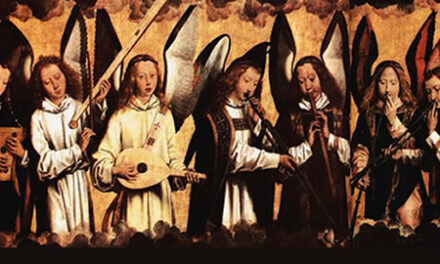Maria Howell hadn’t sung in Charlotte for a while when she came back to Charlotte late in 2010 to celebrate 25 years in the business. The growth that I witnessed since the last time I’d seen her at JazzCharlotte during the early years of her career was astonishing. The poise at Actor’s Theatre that night was of an assured veteran rather than a tentative newcomer. No less remarkable – especially for a performer whose career has detoured into movies and TV – was the growth in musical confidence and sophistication. As an entertainer and as a musician, Howell showed me that she knew who she was. So when Howell was announced as a headliner in the Jazz at the Bechtler series, no coercion was necessary to bring me out for another helping. She was joined in Bechtler Museum’s cheery entrance hall by the Ziad Jazz Quartet and a capacity crowd of Howell enthusiasts that was even larger than the 25th anniversary turnout.
The Ziad Quartet kicked off the program without Howell, but this wouldn’t be a long warm-up to a short concert. Instead, Freddie Hubbard’s “Birdland” served as a tasty intro for all four members of the quartet, with Ziad’s solo on tenor saxophone followed by Ron Brendle’s on bass and Noel Friedline’s on electric piano. Drummer Rick Dior then made his presence felt, trading four-bar volleys with both Ziad and Friedline before the reedman reprised the melody. When Howell came on, she went through a warm-up of her own, performing a midtempo standard to open each of her two sets. Instead of rouge, she applied some R&B and Nancy Wilson inflections to Irving Berlin’s “Cheek to Cheek,” starting off the evening in a rather conventional arrangement. Ziad blew a half chorus between Howell’s two vocals, the second taking us home from the bridge. Returning from intermission, Howell was equally safe and unimaginative on Cole Porter’s “Too Darn Hot,” a virtual carbon copy of Ella Fitzgerald’s version in her Songbook recordings.
As she relaxed into each set, Howell brought more individuality to the jazz standards, including Gershwin’s “Do It Again” and the Peggy Lee revamp of “Fever” in the opening set and Burton Lane’s “Old Devil Moon” after the break. After a gospel infusion for the Captain Cook stanza of “Fever,” the Betty Boop flavoring, by way of Jackée Harry, applied to Romeo and Juliet worked beautifully. But Howell fell a little bit too in love with this affectation, mixing it with a few Nancy Wilson exclamations and a whole mess of Marlena Shaw self-indulgence in “Do It Again” to close out the first set. Far better was her treatment of “Old Devil Moon,” with a magnificent Friedline solo, some inspired scatting from Howell, and after veering oddly – and amusingly – into “Killer Joe,” a supercool parley with Brendle.
Howell enters her special zone when she freely mixes jazz with country gospel and urban blues, but I was most impressed when this synthesis was built upon a pop or R&B tune. Hearing Burt Bacharach’s “The Look of Love” and Etta James’s “At Last,” the audience emphatically agreed with standing ovations. The arrangement of the Mack Gordon-Harry Warren tune was relatively straightforward, punctuated by a seething Ziad solo before Howell set off her fireworks. “Look of Love” was easily the most prodigious performance of the evening, with the quartet in top form meshing with the lead singer. Ziad inflects his bebop with a funkiness that blends well with Howell’s idiom. He howls in the heat of his solos with the calculation of an accomplished “smooth jazz” practitioner – concise qualities that are ideal for spelling any singer before discreetly fading into the background. Friedline is the wilder creator, capable of building to steely climaxes that remind me of McCoy Tyner, but he occasionally trampled on the toes of his lead singer with his mischievous, freewheeling spirit. In “Look of Love,” Friedline balanced his virtuoso and accompanist roles brilliantly in the wake of Ziad’s finely crafted solo, setting up an enticing flight path for Howell. The singer seized her moment with a barrage of inventiveness and bravura that even astonished her fans. When she sings like that, you can count me among them.











